1-Day Retreat: Healing Qigong and the Zen of Kintsugi, May 2025

1-Day Retreat: Healing Qigong and the Zen of Kintsugi (Golden Harmony)
When: Saturday 3 May 2025, 9am – 3.30pm. Please arrive between 8.45 – 9am
Where: Auckland Botanic Gardens (in the Friends Building), 102 Hill Road, The Gardens, Auckland 2105
This 1-day retreat is truly unique as this amazing combination of ancient Chinese and Japanese practices has never been offered before by Kia Ora Tai Chi. Join us for a day of self-care, where the team will guide you on how to nurture your health, let go of stress, and embrace the golden magic of imperfection.
Participants: Adults aged 18+. Beginners will be very welcome.
Embrace the Healing Power of Qigong from Ancient China

Awaken the energy flow within you with qigong
Discover the art of healing qigong (pronounced ‘chee gong’) with deep meditative breathing and mindful movements.
Experience a golden glow within as you awaken the energy flow (qi) throughout your body, calm your mind, and enhance your overall wellbeing.
Find Flow through the Japanese Zen concept of Wabi Sabi

Unlock the secret to inner peace with wabi sabi. This centuries-old Japanese philosophy finds beauty in simplicity, imperfection, and the natural flow of life, which will leave you feeling ‘as good as gold’.
How liberating would it feel to stop trying to be perfect all of the time? Absolutely, it would be like winning a ‘get out of jail free’ card in a board game. By embracing imperfection and going with the flow, your movements will become more fluid and you’ll improve your qigong.
By integrating wabi sabi into your qigong practice and also everyday life, you’ll let go of stress and tension, sleep better at night and feel more energised during the day.
Rediscover Wholeness with Kintsugi (all materials will be provided for this)
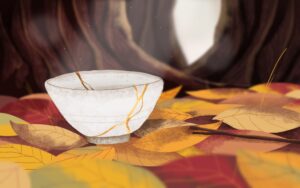
Broken ceramic bowl that has been joined back together using golden glue (kintsugi)
Experience the magic of kintsugi (literally “golden joinery”), which is the centuries-old Japanese art of mending broken pottery with golden glue.
This practice teaches us that flaws and cracks are what make us truly unique. By applying this philosophy to life, you’ll learn to see beauty in every moment and cherish the golden experiences that shape you.
During this workshop, and with the guidance of an expert sensei (teacher), you’ll create your own kintsugi piece to take home—a beautiful reminder that nothing is ever truly broken.
Explore the Tranquil Auckland Botanic Gardens
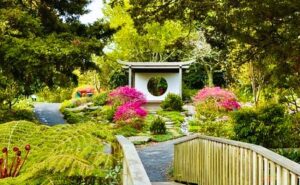
Camellia garden in the Auckland Botanic Gardens
At the end of the retreat, there will be time for your own self-guided tour of these peaceful gardens. You may like to:
- Explore the serene beauty of the Camellia Garden, which will be just coming into bloom. Camellias are native to both China and Japan (and other parts of Eastern and Southern Asia).
- Immerse yourself in Shinrin-yoku (Japanese for ‘forest bathing’) in the dappled seclusion of the native bush area.
- Admire: the many fascinating and intriguing sculptures throughout the gardens.
- Embark on your own ‘sniffari’ and delight in the aromas of the edible and herb gardens.
- Get dreamy with the palms or in the rose garden.
- Or simply wend your way along the many walkways to feast your eyes and senses on nature at its best.
$195 per person | Limited to 10 participants.
Please contact Jocelyn (of Kia Ora Tai Chi) to reserve a place in this unique retreat by phoning or texting her on 027 493 9851, or using the Contact Form on the Kia Ora Tai Chi website. She will advise options for payment.
About your instructors

Jocelyn Watkin
Jocelyn Watkin is a qualified qigong and tai chi instructor in Auckland, New Zealand, who has been enjoying the health benefits of these ancient Chinese arts for over 20 years. She has visited China three times and Japan over 10 times. She loves exploring and researching the traditional philosophy and the concept of Zen of both countries.
She is the founder and director of Kia Ora Tai Chi and is registered as a group exercise provider (with own choreography) with the New Zealand Register of Exercise Professionals (REPs).
Testimonial: “I really enjoyed your style, Jocelyn. Friendly, caring, informative and non-judgemental. You made me feel relaxed and welcome. Thank you.” (Participant in the Stardome mini-retreat, March 2022)

Ema Frost
Ema Frost is a New Zealand artist, illustrator and ceramic designer who has been teaching Kintsugi for over five years. She regularly travels to Japan to study and learn new techniques.
Testimonial: “I really enjoyed the kintsugi workshop with Ema. She is very patient and a great teacher. And now I have the skills to make anything with this style, and have even made one as a gift. Really enjoyable day. Fun and relaxed atmosphere. Would definitely recommend this workshop. (Lisa)
Who should attend?
This workshop is open to anyone aged 18+ who seeks to refresh and rebalance their body, mind, and soul. Ideal for beginners and also for tai chi and qigong enthusiasts who want to get more out of their practice.
Here are all the details of this 1-Day Retreat for Healing Qigong and the Zen of Kintsugi (Golden Harmony)
When: Saturday 3 May 2025, 9am – 3.30pm, please arrive between 8.45 – 9am
Where: Auckland Botanic Gardens (in the Friends Building), 102 Hill Road, The Gardens, Auckland 2105
Parking: Plenty of free parking is available in the main car park at the Auckland Botanic Gardens. The Friends Building is a small house located next to the main carpark (on the Western side of the car park).
What to wear: Comfortable, loose clothing that is easy to move in and flat-soled shoes. Please bring a jersey or hoodie to keep warm, as we will be sitting still for some of the time. If you want to explore the gardens after the retreat, please also bring an outdoor jacket.
Please bring: Your lunch, pen and paper to take notes, filled water bottle and a snack.
$195 per person | Limited to 10 participants
Please contact Jocelyn to reserve a place in this unique retreat by phoning or texting her on 027 493 9851, or using the Contact Form on the Kia Ora Tai Chi website. She will advise options for payment.
What is qigong (pronounced chee-gong)?

Qigong breathing is healing and liberating
For thousands of years the Chinese have had a secret. A secret that helps to increase longevity and assists the body to heal from injury, illness and trauma.
That secret is qigong – a deep, meditative breathing and movement exercise that connects the mind to the body.
The main reasons why people learn qigong are to manage and reduce stress, and improve their overall health and well-being.
Qigong is about releasing stress, not suppressing it. Through special qigong breathing you can learn how to let go of stress so you can enjoy more of the good and creative things in life.
Jocelyn and Ema would love to share their knowledge with you at this very special retreat so you can immerse yourself in Healing Qigong and the Zen of Kintsugi.
Cancellation policy
This retreat must be paid for in full to reserve your place. A 90% refund is available if you withdraw before 1 February 2025. A 50% refund is available if you withdraw before 1 March 2025. No refunds are available from 1 March onwards.
If you are unwell on the workshop day (3 May 2025)
Please do not attend if you are sick or have cold or ‘flu-like symptoms. In these circumstances, you will be issued with a credit to attend another tai chi or qigong workshop or retreat by Kia Ora Tai Chi.
All participants will need to respect the need for social distancing at all times during the retreat. Anyone is welcome to wear a face mask if they wish.
The room will be well-ventilated and hand sanitiser will be provided.
We will abide by the NZ Government’s health advice and regulations as they apply at the time of this retreat.
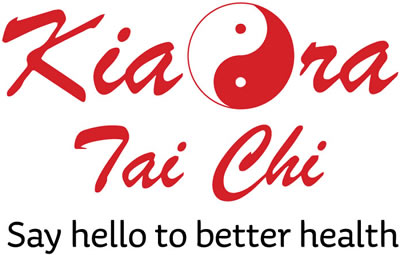
 Latest evidence suggests that both tai chi and qigong have a positive impact on immune system functioning and inflammatory responses.
Latest evidence suggests that both tai chi and qigong have a positive impact on immune system functioning and inflammatory responses.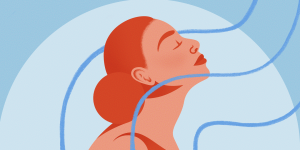 Breathing – we all do it automatically: approximately 18 times per minute, 1,080 times per hour and nearly 26,000 times in a 24-hour day. You would have thought we’d got it down to a fine art?
Breathing – we all do it automatically: approximately 18 times per minute, 1,080 times per hour and nearly 26,000 times in a 24-hour day. You would have thought we’d got it down to a fine art?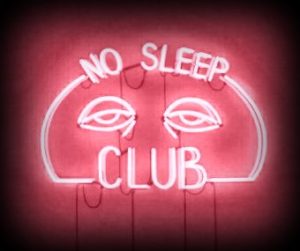 It’s a night club, but there’s no dancing or happiness. The ‘No Sleep Club’ is no fun at all. It feels like you are stuck at the
It’s a night club, but there’s no dancing or happiness. The ‘No Sleep Club’ is no fun at all. It feels like you are stuck at the 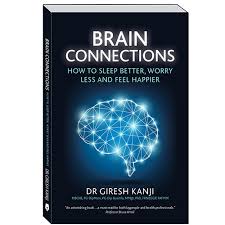 Dr Kanji has written a book called:
Dr Kanji has written a book called: 
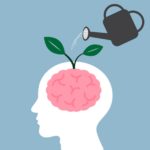 Your brain while meditating – calm, clear and confident. Your brain doing tai chi – calm, clear, and confident. This is no coincidence. Even my newer students notice how the more experienced students ‘get in the zone’ when doing tai chi. They want that, too. Don’t we all??
Your brain while meditating – calm, clear and confident. Your brain doing tai chi – calm, clear, and confident. This is no coincidence. Even my newer students notice how the more experienced students ‘get in the zone’ when doing tai chi. They want that, too. Don’t we all??